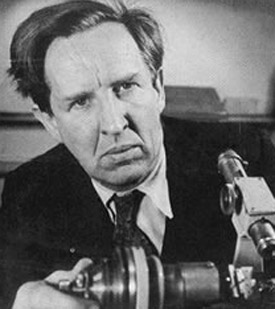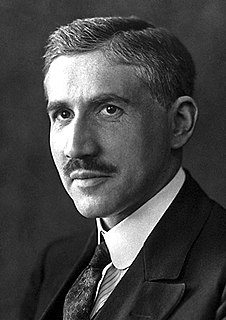This article does not cite any sources .(April 2015) (Learn how and when to remove this template message) |
This article does not cite any sources .(April 2015) (Learn how and when to remove this template message) |

John Desmond Bernal was an Irish scientist who pioneered the use of X-ray crystallography in molecular biology. He published extensively on the history of science. In addition, Bernal was a political supporter of communism and wrote popular books on science and society.
George Roger Clemo FRS was a British organic chemist.
Harold Munro Fox FRS was a British zoologist.

Otto Fritz Meyerhof was a German physician and biochemist who won the Nobel Prize in Physiology and Medicine in 1922.

Prof Henry Norris Russell ForMemRS HFRSE FRAS was an American astronomer who, along with Ejnar Hertzsprung, developed the Hertzsprung–Russell diagram (1910). In 1923, working with Frederick Saunders, he developed Russell–Saunders coupling, which is also known as LS coupling.

Alexander Cambridge, 1st Earl of Athlone, was a British Army commander and major-general who served as the fourth Governor-General of the Union of South Africa and as Governor General of Canada, the 16th since the Canadian Confederation.
The Treasurer of the Household is a member of the Royal Household of the Sovereign of the United Kingdom. The position is usually held by one of the government deputy Chief Whips in the House of Commons. The Treasurer was a member of the Board of Green Cloth, until the Board of Green Cloth disappeared in the reform of local government licensing in 2004, brought about by the Licensing Act 2003.
The Chemical Society was formed in 1841 by 77 scientists as a result of increased interest in scientific matters. Chemist Robert Warington was the driving force behind its creation.
The Coronation Honours 1911 for the British Empire were announced on 19 June 1911, to celebrate the coronation of George V which was held on the 22 June 1911.
The Diamond Jubilee Honours for the British Empire were announced on 22 June 1897 to celebrate the Diamond Jubilee of Queen Victoria on 20 June 1897.
The 1902 Birthday Honours were announced on 10 November 1902, to celebrate the birthday of Edward VII the previous day. The list included appointments to various orders and honours of the United Kingdom and the British Empire.
The 1902 Coronation Honours were announced on 26 June 1902, the date originally set for the coronation of King Edward VII. The coronation was postponed because the King had been taken ill two days before, but he ordered that the honours list should be published on that day anyway.
The 1889 Birthday Honours were appointments by Queen Victoria to various orders and honours to reward and highlight good works by citizens of the British Empire. The appointments were made to celebrate the official birthday of The Queen, and were published in the London Gazette on 24 May 1889 and in The Times on 25 May 1889.
The 1860 Birthday Honours were appointments by Queen Victoria to various orders and honours to reward and highlight good works by citizens of the British Empire. The appointments were made to celebrate the official birthday of the Queen, and were published in The London Gazette on 18 May 1860.
The 1869 Birthday Honours were appointments by Queen Victoria to various orders and honours to reward and highlight good works by citizens of the British Empire. The appointments were made to celebrate the official birthday of the Queen, and were published in The London Gazette on 2 June, 4 June and 1 July 1869.
The 1873 Birthday Honours were appointments by Queen Victoria to various orders and honours to reward and highlight good works by citizens of the British Empire. The appointments were made to celebrate the official birthday of the Queen, and were published in The London Gazette on 24 May 1873.
The 1877 Birthday Honours were appointments by Queen Victoria to various orders and honours to reward and highlight good works by citizens of the British Empire. The appointments were made to celebrate the official birthday of the Queen, and were published in The London Gazette on 30 May and 2 June 1877.
The 1881 Birthday Honours were appointments by Queen Victoria to various orders and honours to reward and highlight good works by citizens of the British Empire. The appointments were made to celebrate the official birthday of the Queen, and were published in The London Gazette on 24 May 1881.